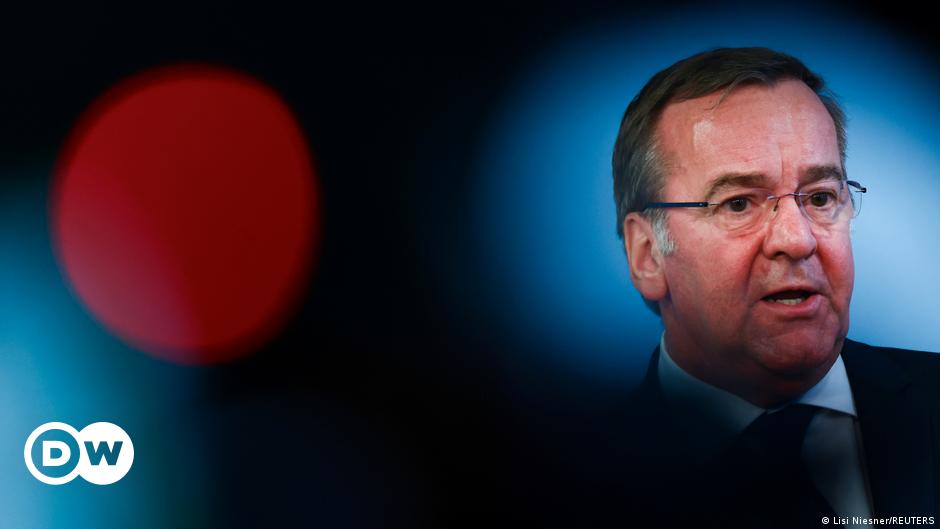Defense Minister Boris Pistorius, currently Germany's most popular politician according to opinion polls, very deliberately chose that date, the 75th anniversary of the founding of NATO. At the time, it was a turning point in world politics. It was a new alliance of Western powers against the threat posed by the socialist-communist states of the East.
Pistorius now also hopes for a turning point for “his” Bundeswehr. “No one should understand the idea of attacking us as NATO territory,” he said in Berlin on Thursday.
Pistorius's “tipping point” for the Bundeswehr is once again linked to threats from the east, or more precisely to the impact of Russian President Vladimir Putin's attack on Ukraine and the instability it has caused in NATO countries. . east side. However, Pistorius did not mention the Kremlin leader's name at Thursday's press conference in Berlin.
4 branches, 1 command
The long-term plan for reform is to shift armed movement from arduous long-term missions in places like Afghanistan, Mali, Kosovo and the Horn of Africa to national defense. “This is a shift from an army for overseas missions to an army for the defense of the country and the alliance,” military expert Thomas Wiegold told DW. This new priority code is LV/BV. The abbreviations stand for National Defense and Allied Defense. Pistorius said he wants to make the military “fit for war.”
The reforms aim to provide greater clarity, reduce bureaucracy and reduce duplicative structures. The Bundeswehr's operations will soon be coordinated in a single central location, the so-called Operational Headquarters, but up until now domestic and foreign operations have been managed separately. The idea behind this, according to Pistorius, is “to have a single source of information for planning and operational control of the Bundeswehr.”
Even the center-right opposition Christian Democratic Union (CDU) has little dissatisfaction with the plan. “It is absolutely positive to combine the operational forces (for overseas operations) and the territorial forces (for domestic operations) to form the Bundeswehr operational forces,” CDU defense expert Roderich Kiesewetter said. told DW via email.
Cyber defense upgrades
Pistorius also wants to make the Bundeswehr more suited to the relatively new fronts of world wars, with plans to create new branches of the military in cyber and information warfare. “It's about analyzing hybrid threats, for example in terms of disinformation campaigns,” he said.
It would also create a support command for medical supplies, logistics, and nuclear, biological, and chemical weapons attacks that would be available to all branches of the military.
Mr Pistorius wants to manage many operations centrally and efficiently, which also means streamlining: “The aim was to bring responsibilities together; staff units were abolished; It will happen,” he said. However, the ministry has not yet disclosed where and how many people are there.
He also said he wants to give himself and his team six months to implement reforms. Is this possible? “Six months may be enough for structural reforms at the top, but their introduction into the military will take a much longer time,” Wiegold told DW.
Many had expected Mr. Pistorius to present his thoughts on the possibility of reintroducing compulsory military service, but nothing of the kind was provided on Thursday. However, the Bundeswehr still faces a shortage of new recruits. This trend has been on the decline since Germany's mandatory military service was suspended in 2011. The defense minister wants Germany to have at least 200,000 soldiers by 2031, compared to just over 180,000 currently.
Conclusion: “Basically a good idea”
Nevertheless, Mr. Pistorius is apparently continuing to consider models of compulsory military service, and is considering practices in Scandinavian countries. But on Thursday, it only mentioned that a model was also being considered in the case of “reintroducing compulsory military service.”
Wiegold believes that Pistorius may have deliberately wanted to separate the issue of compulsory military service and reform of the Bundeswehr, saying, “When it comes to compulsory military service, we need political support. Because it's a decision.” “He cannot do it alone. He needs the support of both the coalition government and parliament.” Meanwhile, the CDU's Kiesevetter said the continued wait-and-see attitude was due to “unfortunately the current coalition government I believe this is also due to the lack of internal unity.
Wiegold insists Pistorius' reform plan is on the right track in principle, “but like many good ideas, it depends on how it is implemented.” Stated. Kiesewetter is more critical. Pistorius's focus on “force” is fundamentally correct, “but the reforms fall short of their potential.”
Pistorius insisted he was confident that “this is a trend-setting reform.”
While you're here: Every Tuesday, DW editors round up what's happening in German politics and society. You can sign up for his weekly email newsletter “Berlin His Briefing'' here.


